Consciousness is linear; goes, you know, one step after another. And the brain doesn’t work that way. The brain is parallel and has lots and lots of parallel tracks going on at once in thought and in characterizing the substrate of what it is you understand and express. There’s no way you could possibly be conscious of most of or even a small part of what you’re thinking.
Archive (Page 1 of 2)
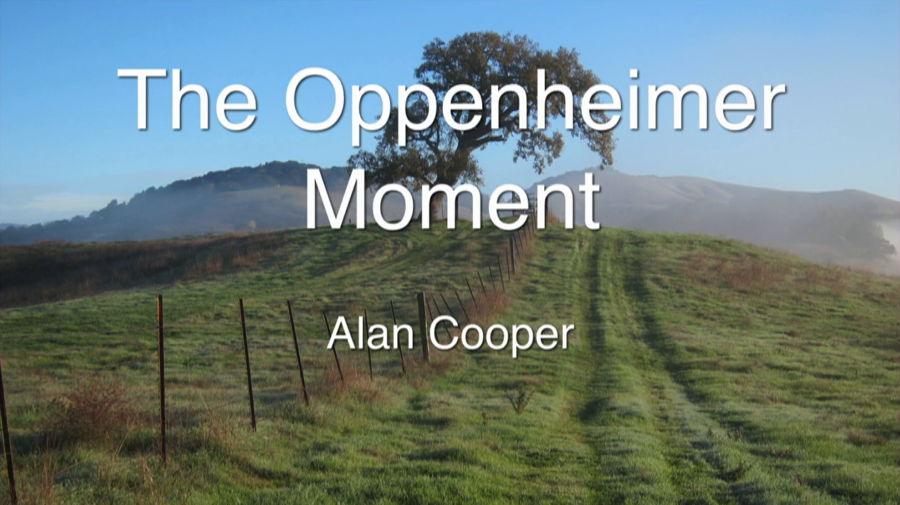
Where did this evil stuff come from? Are we evil? I’m perfectly willing to stipulate you are not evil. Neither is your boss evil. Nor is Larry Page or Mark Zuckerberg or Bill Gates. And yet the results of our work, our best most altruistic work, often turns evil when it’s deployed in the larger world. We go to work every day, genuinely expecting to make the world a better place with our powerful technology. But somehow, evil is sneaking in despite our good intentions.
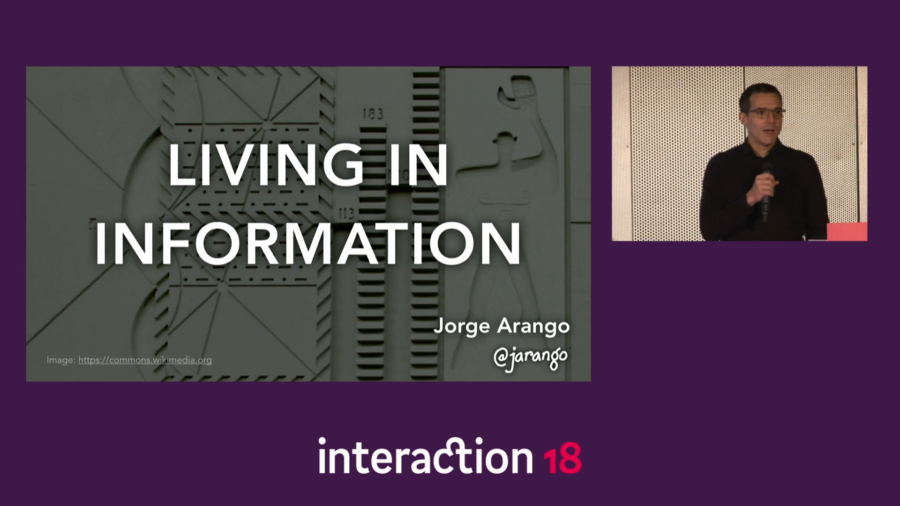
The framing of what we design is very important to how we go about it. We have not been framing these things as contexts. We’ve been framing them as products, services, and a whole other series of terms that are— Tools, for example. And these are things that are mostly transactional. They’re not things that are meant to be inhabited.
Benevolence isn’t inefficient and I’m a big fan of benevolence. It’s just that it’s not enough. It’s okay for a group of twenty-five or fifty people where everyone knows everyone. But when you have 300 million in the US or 7 billion in the world, if we were self-sufficient and we had to produce everything for ourselves we’d all die, or 99% of us would die. So we have to cooperate with each other. But the only way to cooperate with each other in such large numbers is through markets.
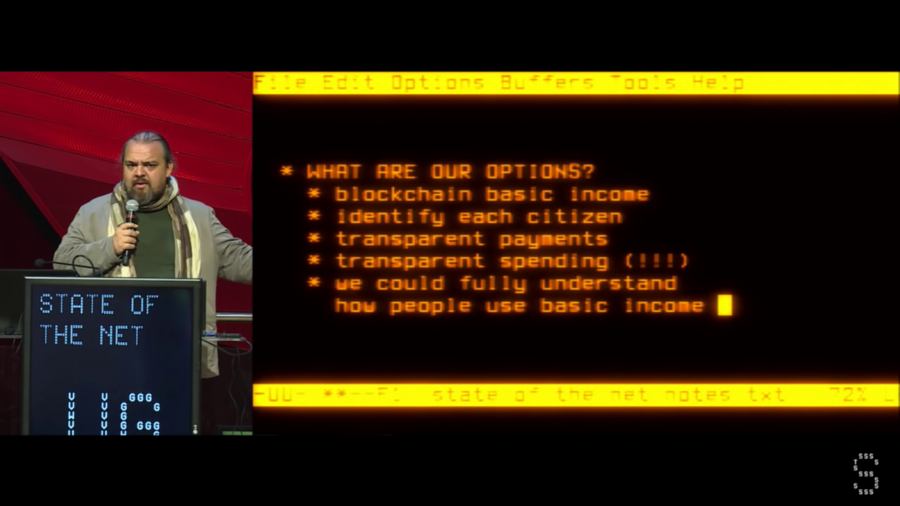
Everybody thinks of bureaucrats as being kind of a neutral force. But I’m going to make the case that bureaucrats are in fact a very strongly negative force, and that automating the bureaucratic functions inside of our society is necessary for further human progress.
When you talk about learning and traditional educational styles, there’s this very common inclination to try and force information upon people rather than having them just kind of discover it of their own volition or discover it by accident.
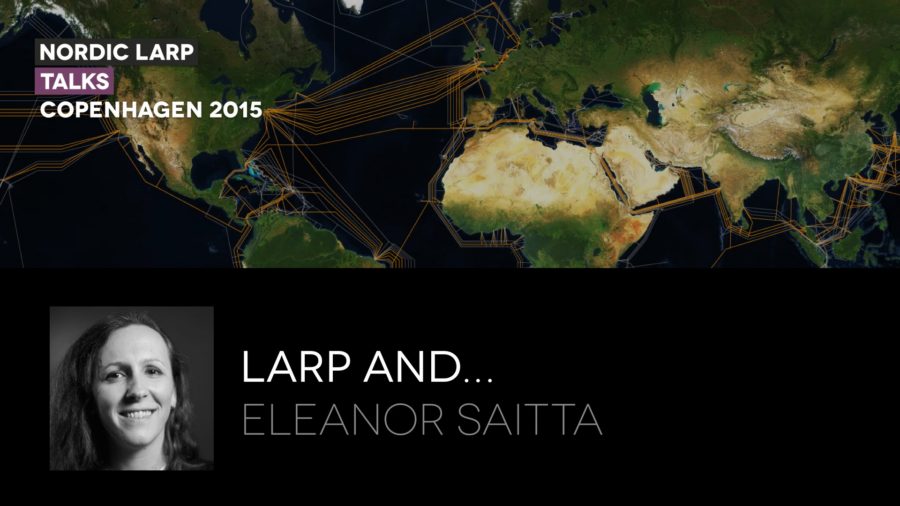
I’m going talk to you guys about larp and. Larp and a whole lot of other things. Because I think the most interesting things about larp are maybe not actually larp itself, but when larp meets a whole bunch of the rest of the world.
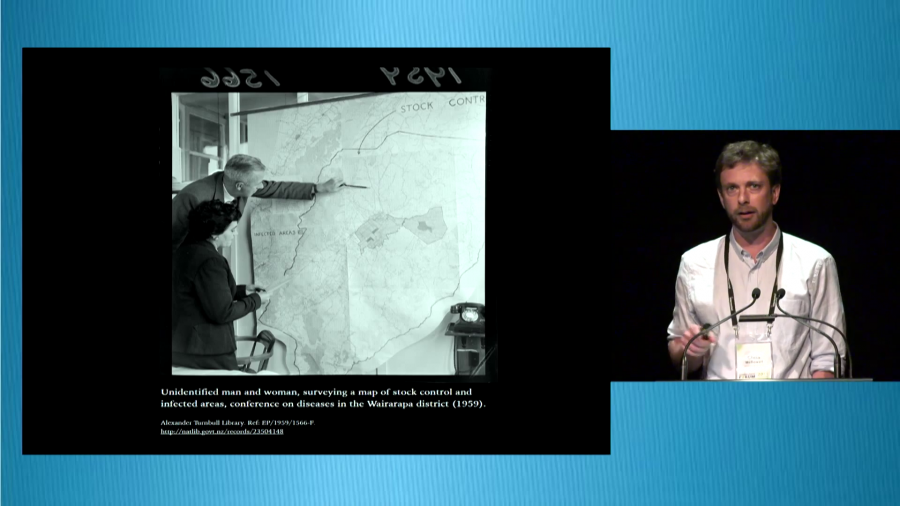
Sometimes I think about these sorts of working graphics as a sort of mental scaffolding. In the act of rendering data, or drawing our thoughts, we assemble a construct to hang other concepts from. So it’s a construct that can be extended or modified or disassembled and turned into something new.
It’s like we’ve got all these proxy wars going, where people are fighting bitterly over these things. And if you could sort of go back to the original global conflict almost, of ideas, I think you’d get to some interesting arational assumptions. Some of which would be different. Some of which might be very similar. And then you’d wonder why the hell are these proxy wars going on?
Some of my artist friends think what I’m doing isn’t art, and I’ve given up on art. It’ll take care of itself. You know. I mean it’s always been there, it will always be there, and we always know that new art never looks like art at first, ever. So why should this be any different? We just have to trust the process. And I would say that must be true for every other discipline.
